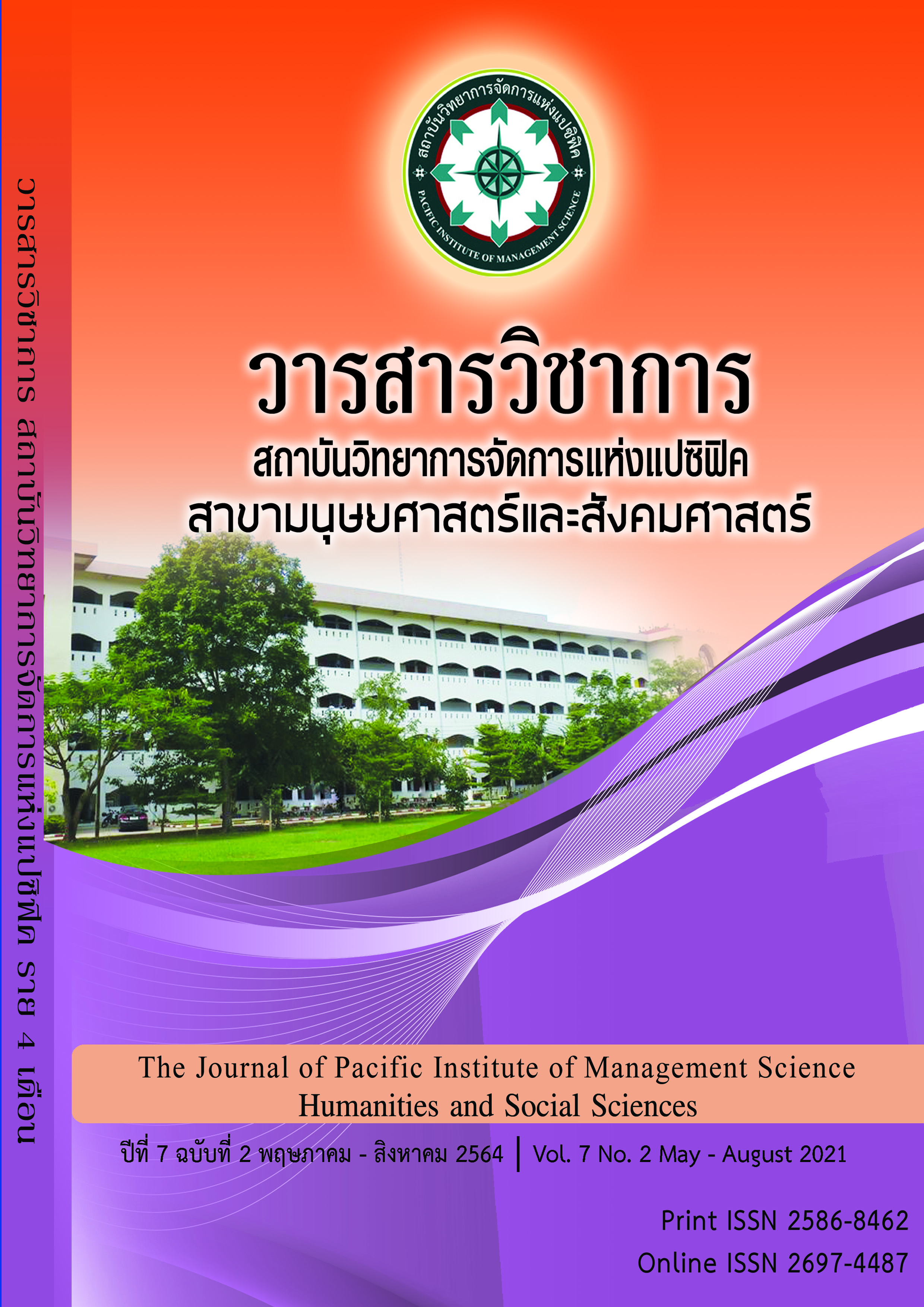Legal Measures Regarding the Protection of Intellectual Property Rights: Case Study of the Process of Search Warrants or Issue an Order to Seize Attach and Keeping Evidence in Intellectual
Keywords:
Intellectual property rights, Search warrant, SequestrationAbstract
ABSTRACT
This research aimed to study concepts, theories, and rules of law, and a process of issuing a search warrant or a sequestration order, and evidences preservation in intellectual cases according to international laws, other countries’ laws, and laws of Thailand. Also, the research’s purpose was to study problems and solutions of a process of issuing a search warrant or a sequestration order, and evidences preservation in intellectual property cases. This qualitative research was conducted as documentary research, collecting the primary data: in-depth interview, and the secondary data: different sources in Thailand and from other countries.
As for the results, legal problems were found, for example, the problem of defining the phrase “IN AN EMERGENCY” written in Section 29 of Act on the Establishment of and Procedure for Intellectual Property and International Trade Court B.E. 2539. Other problems were found in a process of issuing a search warrant or a sequestration order according to the Section 29, and in determining legal measures in case of preserving documents or materials as evidences. These problems affected right holders who were infringed on their copyright and could not access to a justice procedure in order to bring offenders to a criminal punishment. Therefore, it could be suggested that an amendment of the Section 29 should be conducted, that is, the phrase “IN AN EMERGENCY” ought to be clarified explicitly. Additionally, other suggestions are legislating for determining principles of issuing a search warrant or a sequestration order especially in intellectual property cases, permitting a private sector, instead of government officials, to request for a search warrant or a sequestration order for evidence preservation, including determining explicit principles of how to collect and preserve evidences by court and government officials.
References
กรมทรัพย์สินทางปัญญา.พิธีสารมาดริด (Madrid Protocol) เส้นทางสู่การสร้างตราสินค้าระดับโลก. กรุงเทพมหานคร: กรมทรัพย์สินทางปัญญา,2561.
กรมทรัพย์สินทางปัญญา.คู่มือการใช้งานลิขสิทธิ์เพื่อประโยชน์ของคนพิการ ตามมาตรา 32/4 กรุงเทพมหานคร: กรมทรัพย์สินทางปัญญา,2562.
จุมพล ภิญโญสินวัฒน์. “หลักการและเหตุผลของการคุ้มครองสิทธิในทรัพย์สินทางปัญญา.” ดุษฎีนิพนธ์ คณะนิติศาสตร์ มหาวิทยาลัยธรรมศาสตร์,2552.
ณัฐกร วิทิตานนท์.หลักรัฐธรรมนูญเบื้องต้น.กรุงเทพมหานคร: จุฬาลงกรณ์มหาวิทยาลัย, 2557.
บรรเจิด สิงคะเนติ. (2555). หลักพื้นฐานเกี่ยวกับสิทธิและเสรีภาพ และศักดิ์ศรีความเป็นมนุษย์. กรุงเทพมหานคร: สำนักพิมพ์วิญญูชน
บรรเจิด สิงคะเนติ. (2561). หลักกฎหมายมหาชน หลักนิติธรรม/นิติรัฐ ในฐานะ “เกณฑ์” จำกัดอำนาจรัฐ. พิมพ์ครั้งที่ 2. กรุงเทพมหานคร: สำนักพิมพ์วิญญูชน
ประยูร กาญจนดุล.“หลักนิติธรรมไทย” ใน นิติรัฐ นิติธรรม โครงการตำราและเอกสารประกอบการสอน คณะนิติศาสตร์. กรุงเทพมหานคร: มหาวิทยาลัยธรรมศาสตร์,2553.
วิชา มหาคุณ. “อำนาจบริหารและอำนาจตุลาการ: ความมั่นคงของชาติและหลักนิติธรรม” ใน นิติรัฐ นิติธรรม. กรุงเทพมหานคร: มหาวิทยาลัยธรรมศาสตร์.2553.
ศักดา โมกขมรรคกุล. “ความเป็นอิสระของผู้พิพากษา.” บทบัณฑิตย์,52(3), 2539.
พันวิชญ์ โรจนตันติ.“การประสานประโยชน์สาธารณะกับสิทธิเสรีภาพของปัจเจกชนในการตรา กฎหมาย.”วิทยานิพนธ์ปริญญามหาบัณฑิต จุฬาลงกรณ์มหาวิทยาลัย,2545.
มหิธร กลั่นนุรักษ์, “พนักงานสอบสวนคดีพิเศษกับการใช้อำนาจมาตรา 24 แห่งพระราชบัญญัติการสอบสวนคดีพิเศษ,” DSI ไตรสาร, ฉบับที่ 1, ปีที่ 6 น. 52 (2557).
Agreement on Trade-Related Aspects of Intellectual Property Rights (TRIPs Agreement)
Copyright, Designs and Patents Act 1988 of UK
Copyright Law of the United States and Related Laws Contained in Title 17 of the United States Code 2016
Patents Act 1990 of Australia
The Statutes of the Republic of Singapore Copyright Act 1987
Downloads
Published
Issue
Section
License
Copyright (c) 2021 Pacific Institute of Management Science

This work is licensed under a Creative Commons Attribution-NonCommercial-NoDerivatives 4.0 International License.
บทความที่ได้รับการตีพิมพ์เป็นลิขสิทธิ์ของ สถาบันวิทยาการจัดการแห่งแปซิฟิค
ข้อความที่ปรากฏในบทความแต่ละเรื่องในวารสารวิชาการเล่มนี้เป็นความคิดเห็นส่วนตัวของผู้เขียนแต่ละท่านไม่เกี่ยวข้องกับสถาบันวิทยาการจัดการแห่งแปซิฟิค และคณาจารย์ท่านอื่นๆในสถาบันฯ แต่อย่างใด ความรับผิดชอบองค์ประกอบทั้งหมดของบทความแต่ละเรื่องเป็นของผู้เขียนแต่ละท่าน หากมีความผิดพลาดใดๆ ผู้เขียนแต่ละท่านจะรับผิดชอบบทความของตนเองแต่ผู้เดียว







